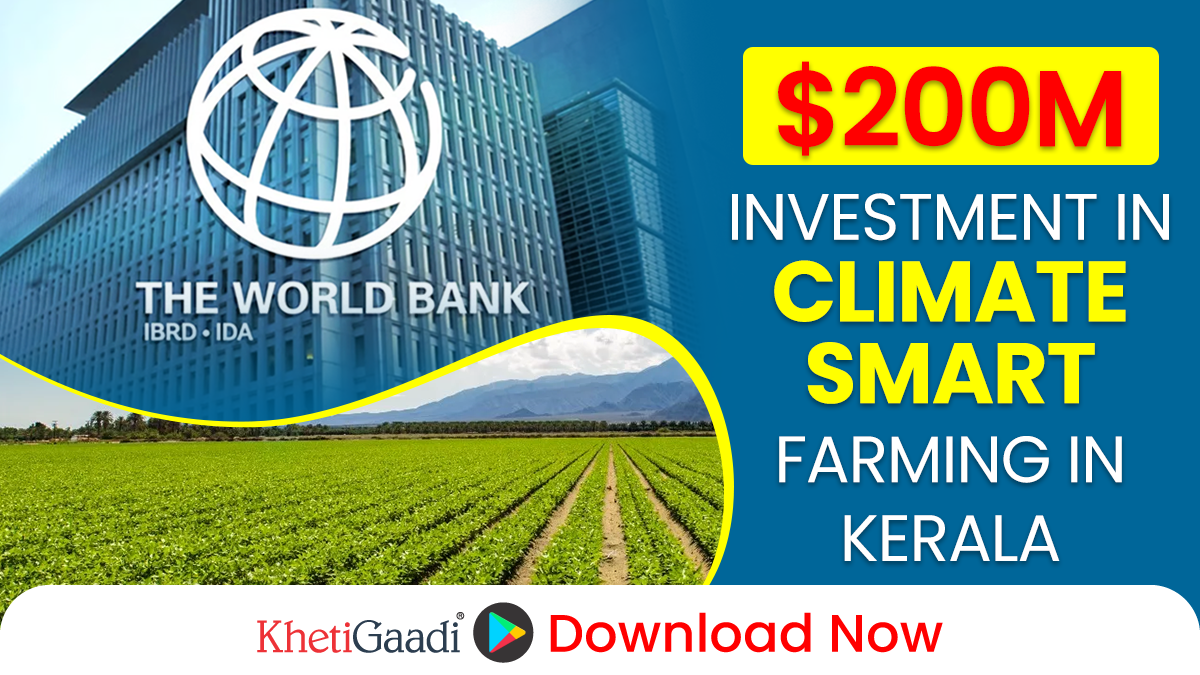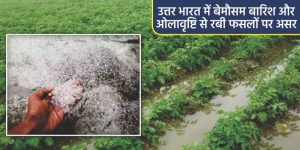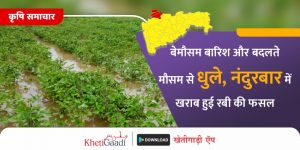KERA Project to Enhance Climate-Resilient Farming in Kerala
In a significant move to support climate adaptation and sustainable agriculture in Kerala, the World Bank has approved a USD 200 million project named the Kerala Climate Resilient Agri-Value Chain Modernization (KERA) Project. This ambitious initiative aims to help farmers adopt climate-smart practices, enhance market access, and foster agri-entrepreneurship, with a focus on women-led SMEs.
KhetiGaadi always provides right tractor information
Project Goals and Key Measures
The KERA Project is expected to transform Kerala’s agricultural landscape, benefiting approximately 400,000 farmers through climate-resilient farming techniques. Among the core measures are replanting climate-resistant varieties of key crops such as coffee, cardamom, and rubber, and offering resources and training to enable farmers to adapt to climate challenges like floods and forest fires. This project will further boost Kerala’s position as one of India’s primary spice producers by fortifying its agricultural resilience.
Focus on Women and Agri-Entrepreneurship
A unique aspect of the KERA Project is its emphasis on empowering women-led agri-entrepreneurs. While women currently own only 23% of Kerala’s MSMEs, this initiative will prioritize support for female entrepreneurs through training in business planning and improved access to finance. This empowerment strategy aims to increase the presence of women in agribusiness and create sustainable income sources within rural communities.
To support SMEs and agri-businesses, the project will leverage USD 9 million in commercial financing. The development of rural food parks is also planned, offering essential infrastructure like water, power, and waste management systems to support food processing and other value-added agribusiness activities.
Building Market Connections and Agri-Tech Innovation
The KERA Project will create productive alliances between farmers and agribusinesses, supported by the public sector. These alliances will bridge the gap between producers and buyers, improving market linkages and helping farmers secure fair prices for their crops. As a part of its innovation-driven approach, the project will serve as an incubator for agri-tech startups, promoting technological advancements and new opportunities in Kerala’s agriculture sector.
Sustainable Impact on Productivity and Emissions
According to Task Team Leaders Chris Jackson, Azeb Mekonnen, and Amadou Dem, the KERA Project will enhance productivity for essential crops like rice while working to reduce greenhouse gas emissions, aligning with broader environmental goals. By improving crop productivity and strengthening agricultural value chains, the initiative will help Kerala’s agriculture sector become more competitive, create rural employment, and increase incomes for farmers.
Financial Model and Long-Term Vision
The International Bank of Reconstruction and Development (IBRD) has provided a USD 200 million loan for the KERA Project, with a maturity period of 23.5 years and a 6-year grace period. This investment reflects the World Bank’s commitment to supporting climate resilience and economic prosperity in Kerala’s agricultural sector. It also positions Kerala as a model for sustainable agriculture, with an emphasis on high-value agri-entrepreneurship.
With Kerala’s agriculture sector poised to benefit from the KERA Project’s comprehensive support, this initiative holds promise for securing the state’s agricultural future while fostering economic growth in its rural communities.
Stay updated on agricultural advancements and government schemes by following KhetiGaadi’s WhatsApp channel or visiting KhetiGaadi’s website regularly.
To know more about tractor price contact to our executive






